
Are you pregnant with your first child?
You may be eligible to participate in a study evaluating how a new medical device may reduce pelvic floor injuries and shorten delivery time for first-time moms.
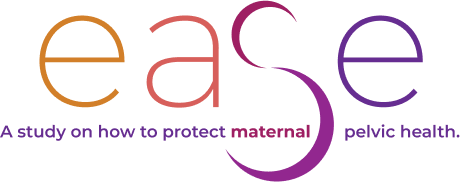
A study on how to protect maternal pelvic health
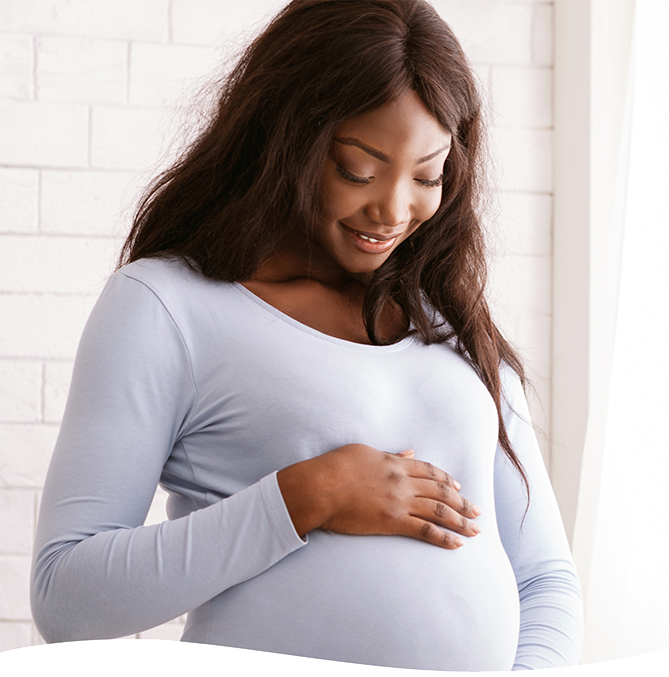
Are you pregnant with your first child?
You may be eligible to participate in a study evaluating how a new medical device may reduce pelvic floor injuries and shorten delivery time for first-time moms.

Potential benefits that may help first-time moms:

- Shorten delivery times
- Prevent pelvic muscle injuries
- Minimize tearing
- Reduce the need for instruments used during deliveries (use of vacuum or forceps to deliver your baby)
- Reduce need for C-Section
- Improve neonatal outcomes (the baby’s APGAR scores)
- Reduce maternal recovery time
Potential benefits that may help first-time moms:



Materna Prep is designed to pre-stretch the birth canal and surrounding pelvic floor muscles over the course of about one hour during labor.
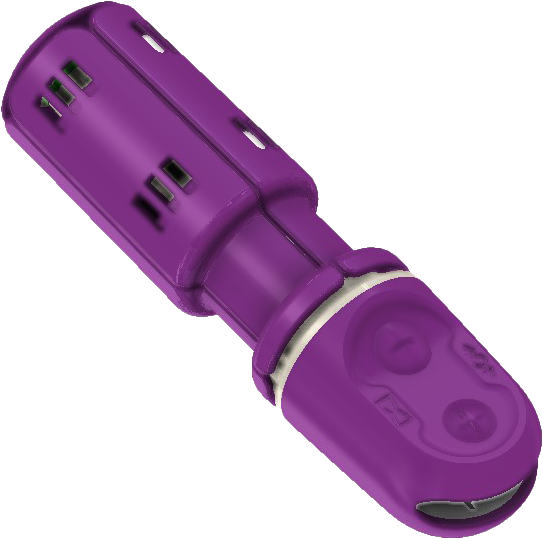
Images below are of the same patient’s pelvic floor muscles before and after vaginal delivery without using Materna Prep.
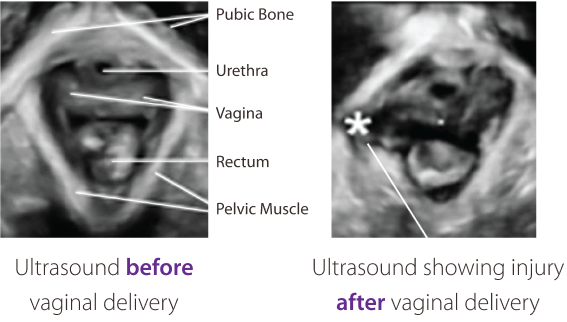
Why participate in this study?
- Vaginal delivery is associated with pelvic floor trauma1
- Pelvic floor injury could lead to fecal incontinence and pelvic organ prolapse, two major forms of pelvic floor disorders2
- Women who vaginally deliver are 5x more likely to have prolapse3
Currently, there are no tools to reduce or prevent pelvic floor damage during vaginal delivery.

English Language Version
Spanish Language Version
Why participate in this study?
 Vaginal delivery is associated with pelvic floor trauma1
Vaginal delivery is associated with pelvic floor trauma1- Pelvic floor injury could lead to fecal incontinence and pelvic organ prolapse, two major forms of pelvic floor disorders2
- Women who vaginally deliver are 5x more likely to have prolapse3
Currently, there are no tools to reduce or prevent pelvic floor damage during vaginal delivery.
English Language Version
Spanish Language Version
The EASE Study is evaluating if gradually pre-stretching the birth canal and surrounding pelvic floor muscles using Materna Prep before vaginal delivery could reduce pelvic injuries and shorten delivery time.
1. Ashton-Miller, 2009 On the Biomechanics of Vaginal Birth and Common Sequelae. Annual Review of Biomedical Engineering, 11, 163-176. 2. S Mant, 1997, May. Epidemiology of genital prolapse: observations from the Oxford Family Panning Association Study. British Journal of Obstetrics and Gynaecology, 104(5), 579-585. 3. Wu JM, Vaughan CP, Goode PS, Redden DT, Burgio KL, Richter HE, Markland AD. Prevalence and trends of symptomatic pelvic floor disorders in U.S. women. Obstet Gynecol. 2014 Jan;123(1):141-148. doi: 10.1097/AOG.0000000000000057. PMID: 24463674; PMCID: PMC3970401.
How to participate
Informed Consent
If you are eligible, you will be asked if you are willing to participate in this study. If you agree, you will be asked to sign an Informed Consent Form.
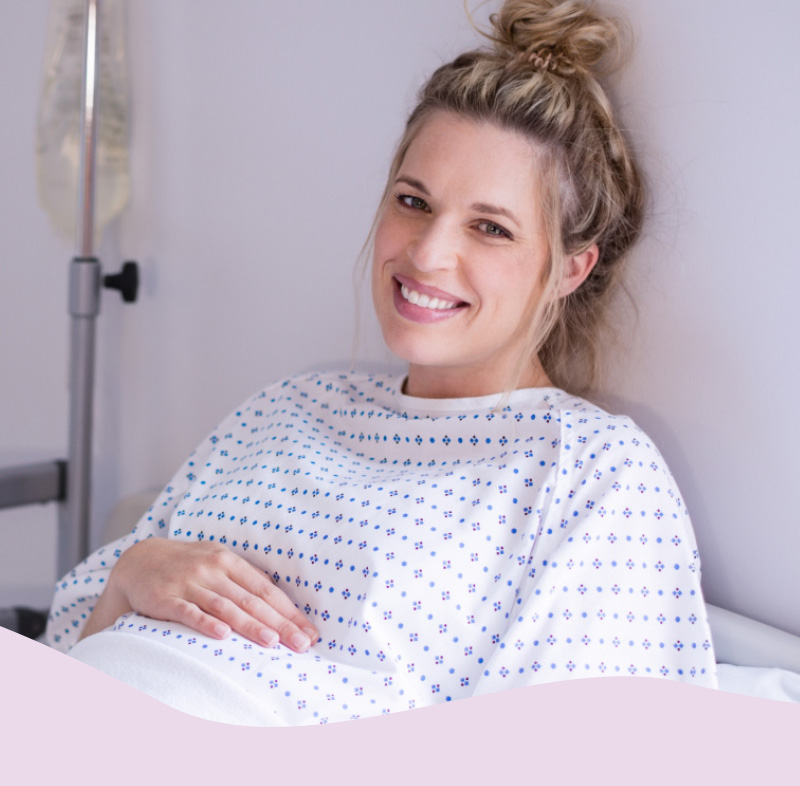
How to participate
Informed Consent
If you are eligible, you will be asked if you are willing to participate in this study. If you agree, you will be asked to sign an Informed Consent Form.
Day of Delivery
After you receive your epidural and before giving birth, you will be randomized to one of two groups:
- Participants who receive Materna Prep (device group), or
- Participants who deliver without use of Materna Prep (control group).
If you are assigned to the device group, Materna Prep will be inserted into your vagina and will gradually expand over about an hour. Before you start pushing, the device will be removed. If you are assigned to the control group, you will deliver without using Materna Prep.
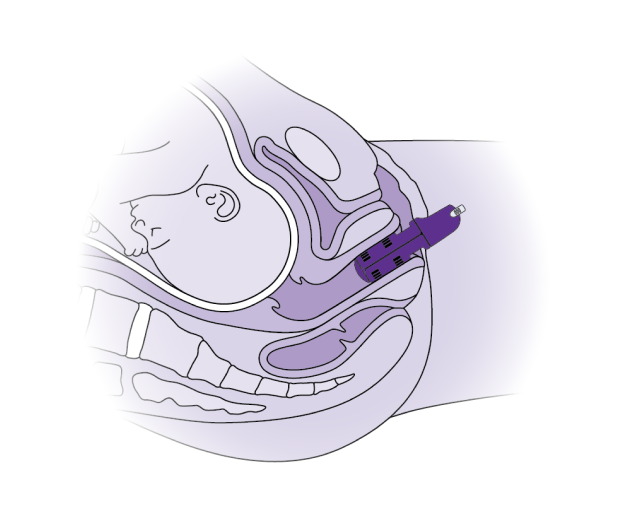
Day of Delivery
After you receive your epidural and before giving birth, you will be randomized to one of two groups:
- Participants who receive Materna Prep (device group), or
- Participants who deliver without use of Materna Prep (control group).
If you are assigned to the device group, Materna Prep will be inserted into your vagina and will gradually expand over about an hour. Before you start pushing, the device will be removed. If you are assigned to the control group, you will deliver without using Materna Prep.

Six weeks after delivery
Data will be collected for the study when you return for your routine 6-week postpartum visit.
Three months after delivery
You will return for a study visit with a unique ultrasound to check on your pelvic floor muscles.
One year after delivery
You will return for a final study visit to have a unique ultrasound to check on your pelvic floor muscles.
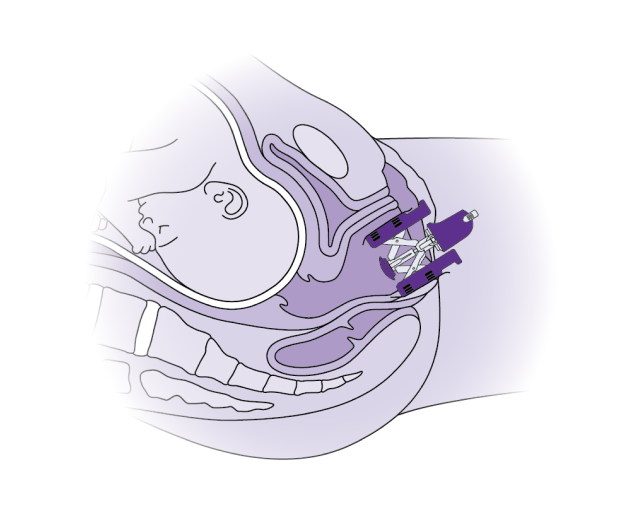
There’s no cost to participate. As a Study participant, you may receive:
- Monetary compensation for your time completing the follow-up visit(s).
- Reimbursement for your travel expenses.
- 3-month diaper subscription ($249 value) after each ultrasound visit.
There’s no cost to participate. As a Study participant, you may receive:
- Monetary compensation for your time completing the follow-up visit(s).
- Reimbursement for your travel expenses.
- 3-month diaper subscription ($249 value) after each ultrasound visit.

What else is involved?
What are the risks?
As with any device inserted into the vagina, there is the risk of infection and damage to the vaginal/perineal tissues and the surrounding muscles. Materna Prep is an investigational medical device, so there may be risks that are unknown at this time. Materna Prep has been categorized as a non-significant risk device.
What are the benefits?
The purpose of the study is to determine if Materna Prep is associated with these improved outcomes for mothers:
- Shorten delivery times
- Prevent pelvic muscle injuries
- Minimize tearing
- Reduce the need for instruments used during deliveries (use of vacuum or forceps to deliver your baby)
- Reduce need for C-Section
- Improve neonatal outcomes (the baby’s APGAR scores)
- Reduce maternal recovery time
Will using Materna Prep hurt?
Materna Prep is placed after you have had your epidural, and your clinician will adjust your pain medication as needed. The device also may be removed quickly if necessary.
CAUTION: Investigational Device. Limited by United States Law to investigational use.
How to participate

If you are interested, contact Materna or an EASE study site near you today. If you are eligible, you will be asked if you are willing to participate in this study. If you agree, you will be asked to sign an Informed Consent Form.
You may be eligible if you…
- Are a first-time mother, pregnant with one baby
- Are at least 18-years old
- Are planning for a vaginal birth at a hospital participating in this study
- Plan to get an epidural

How to participate
If you are interested, contact Materna or an EASE study site near you today. If you are eligible, you will be asked if you are willing to participate in this study. If you agree, you will be asked to sign an Informed Consent Form.
FAQs
Still have questions?
Our clinical trial support team is available to help answer your questions at EASEtrial@maternamed.com
Still have questions?
Our clinical trial support team is available to help answer your questions at preptrial@maternamed.com


